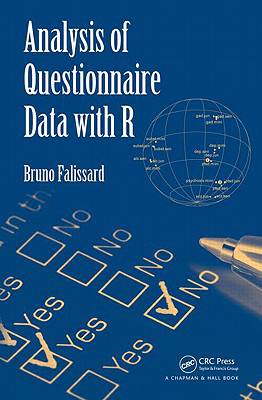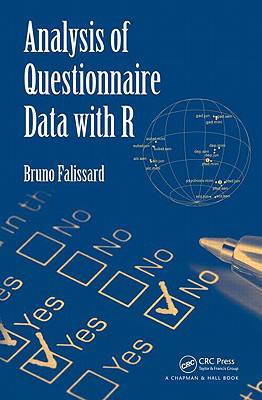
- Retrait gratuit dans votre magasin Club
- 7.000.000 titres dans notre catalogue
- Payer en toute sécurité
- Toujours un magasin près de chez vous
- Retrait gratuit dans votre magasin Club
- 7.000.0000 titres dans notre catalogue
- Payer en toute sécurité
- Toujours un magasin près de chez vous
Description
While theoretical statistics relies primarily on mathematics and hypothetical situations, statistical practice is a translation of a question formulated by a researcher into a series of variables linked by a statistical tool. As with written material, there are almost always differences between the meaning of the original text and translated text. Additionally, many versions can be suggested, each with their advantages and disadvantages.
Analysis of Questionnaire Data with R translates certain classic research questions into statistical formulations. As indicated in the title, the syntax of these statistical formulations is based on the well-known R language, chosen for its popularity, simplicity, and power of its structure. Although syntax is vital, understanding the semantics is the real challenge of any good translation. In this book, the semantics of theoretical-to-practical translation emerges progressively from examples and experience, and occasionally from mathematical considerations.
Sometimes the interpretation of a result is not clear, and there is no statistical tool really suited to the question at hand. Sometimes data sets contain errors, inconsistencies between answers, or missing data. More often, available statistical tools are not formally appropriate for the given situation, making it difficult to assess to what extent this slight inadequacy affects the interpretation of results. Analysis of Questionnaire Data with R tackles these and other common challenges in the practice of statistics.
Spécifications
Parties prenantes
- Auteur(s) :
- Editeur:
Contenu
- Nombre de pages :
- 280
- Langue:
- Anglais
Caractéristiques
- EAN:
- 9781439817667
- Date de parution :
- 21-09-11
- Format:
- Livre relié
- Format numérique:
- Genaaid
- Dimensions :
- 157 mm x 236 mm
- Poids :
- 521 g

Les avis
Nous publions uniquement les avis qui respectent les conditions requises. Consultez nos conditions pour les avis.






